A very popular choice for flooring is made of wool aka wool blend. Before you get to the point of asking how to make wool carpet you should know that these cozy flooring have been the popular choice for millennials now. Do you know why?
“I should tell you that these natural fiber carpets are made of a blend consisting of 80% natural wool and 20% synthetic fibers.” A perfect blend of sustainability and strength, isn’t it?
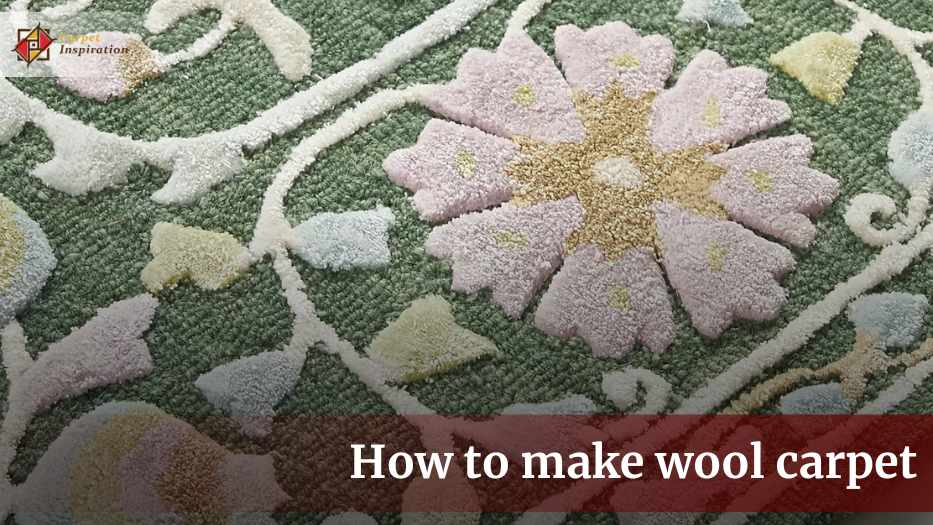
Yes, the benefits of wool carpet are really really high and so the prices are. But why do we care when we can make it ourselves, right? Just follow these steps and you’ll be done –
- Gather Loom, Warp Threads & Wool Fibers
- Prepare Natural Wool & Synthetic Fibers
- Weave Using a Blend of Natural & Synthetic Materials
- Finish, Trim, and Protect Against Carpet Beetle Damage
Broadloom carpet tiles with regular cleaning can make your home the coziest corner for you and your family. But the price for different types of wool carpets always becomes the throne of eye for most people. So let me help you make one yourself. Shall we start?
Before You Start Here’s A Roadmap For You
Table of Contents
What is Wool Carpet?
A wool carpet is a floor covering of wool carpet fibres. As I said earlier these carpets are made of wool blend actually. A blend of 80% wool and 20% of synthetic fibres – say so The Carpet Master too.
The good fact about these carpets is that it improves your indoor air quality. But the pain begins with the tough stain cleaning issues though. But you don’t need to worry as I have content ready explaining to you how you can repair your woven rug without the help of professional cleaning services.
As far as I’ve seen wool carpets are the popular choice for their natural stain resistance (including the water-based stain) and ability to act as a natural insulator 👌Based on what I read in Today’s Homeowner Article – cleanliness is much easier with these types of carpet fibers because they can release soils up to 25% easier compared to nylon carpet.
I mean… that totally counts as pros of wool carpet, don’t you think?

If you ask me about the wool carpet pros then I’d say the first and foremost pros of the natural fibers are that they are warm! The natural crimp of these perfect carpets makes them a natural insulator. Why? It gives you a cozy thermal resistance (R-value) of 0.2 to 0.3 per inch.

Can I Make A Wool Carpet at Home?
Absolutely! Making a wool carpet at home is entirely possible and can be an incredibly satisfying DIY project.
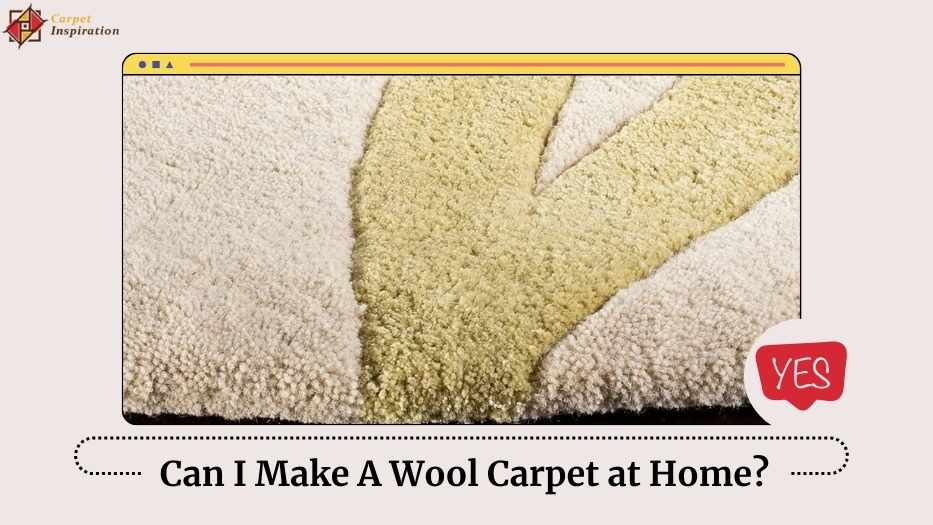
Handwoven wool carpets, crafted from natural wool fibers, are highly valued for their quality and unique designs.
However, incorporating synthetic fibers into your DIY carpet can increase its durability, making it more resistant to foot traffic and water-based spills. This blend of natural and synthetic fibers ensures that your homemade carpet will last for years to come.
Did you know “A wide range of wool fibres can bend up to 20,000 times without breaking.” Make sense of why natural wool carpets are so durable, even in high-traffic areas… Don’t you think?
How To Make Wool Carpet?
The cost of wool carpets can range from $8 to $14 per square foot, depending on quality and brand, but they offer long-term value due to their durability and eco-friendly nature.
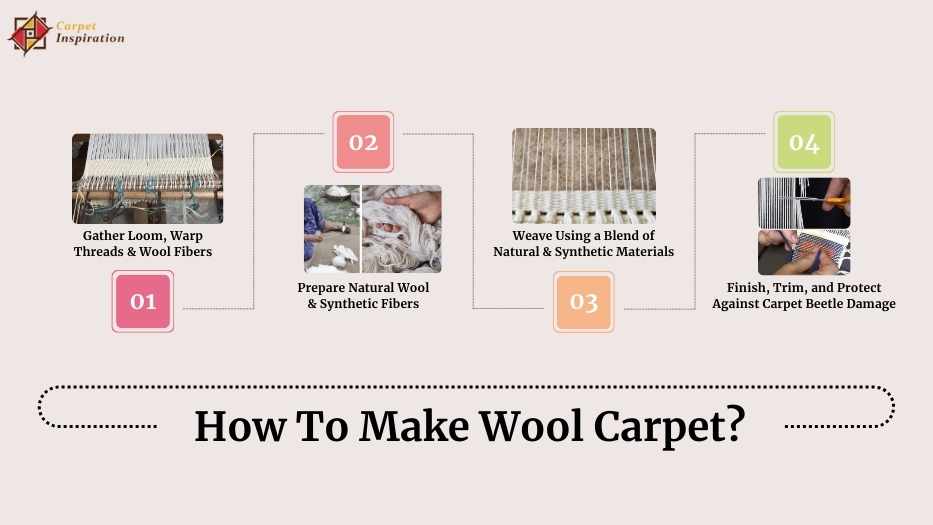
I read in some articles on HandWovenMagazine that Scandinavian-style rug is woven in these patterns. The name Batik Rug Weaving is used since artisans use batik fabric strips for the weft part….Amusing right?😜

From the 5th century BC till this day the 2,500-year-old practice of hand-weaving rugs remains as the undying cultural living legend of Iran. For my carpet weaving
“Hand-knotted rugs have a knot density ranging from 25 to over 1,000 knots per square inch (KPSI) most of the time. Here, a higher KPSI of your rug indicates a finer quality you have at your disposal.” – says the knowledge vault Wikipedia. 🧠
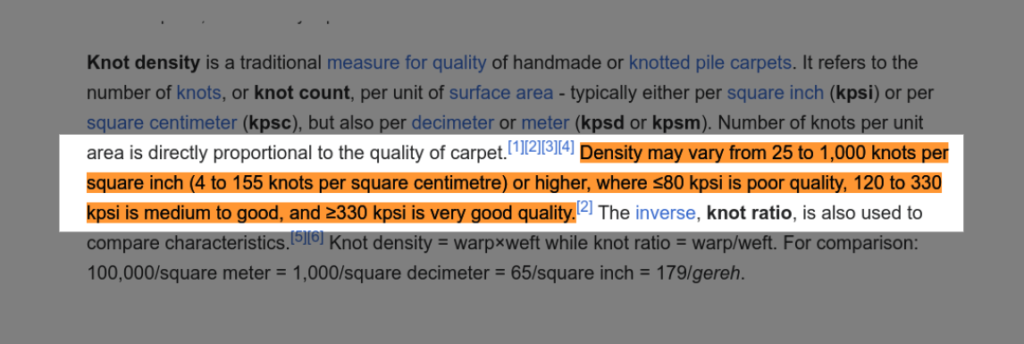
What Tools Are Required To Make Wool Carpet?
To make a wool carpet at home, you’ll need some tools that are necessary for successful completion. After all when thinking about how to make wool carpet, you should also thinks what tools helps you to be done with the task without a hitch.
- 1 Loom
- Some Natural Wool Fibers
- Some Synthetic Fibers
- Rolls of Warp and Weft Threads
- 2 Scissors
- Needle
And a little bit of knowledge of the weaving pattern. Decide which one you like and start weaving. In general, there are 3 weaving techniques you can use while weaving a wool carpet for yourself.
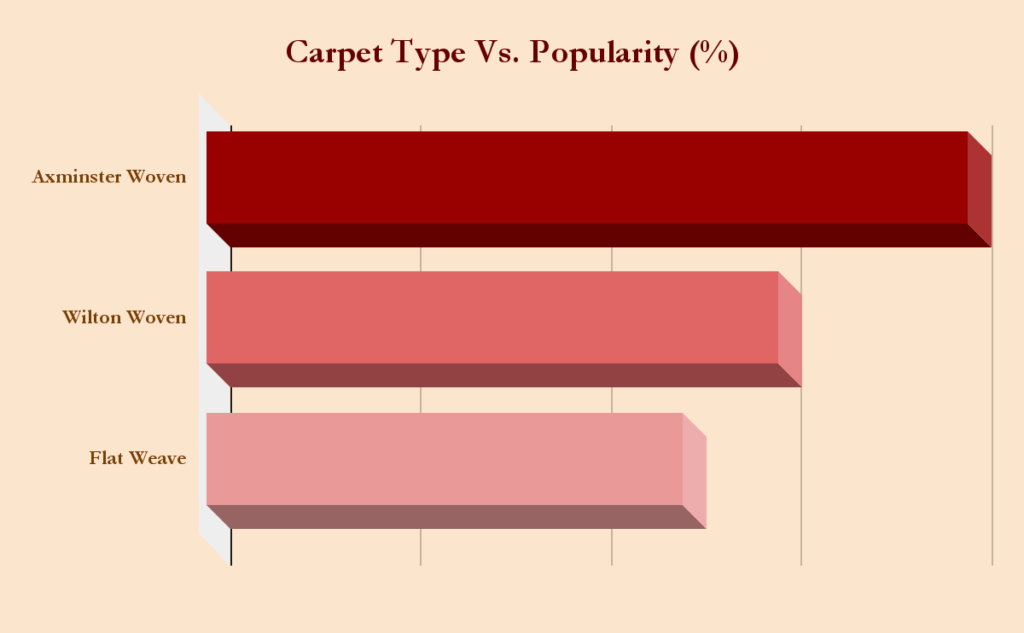
| SL | Carpet Type | Popularity (%) |
| 1. | Axminster Woven | High |
| 2. | Wilton Woven | Moderate |
| 3. | Flat Weave | Low (But most commonly used!) |
Making a Wool Carpet DIY
Do you know how to make a hand-woven rug? Landry & Arcari says that – “A pro weaver can tie a knot in only 10s. Following this standard, a 9×12 ft. rug with a density of 150 knots/sq. in. takes 6,480 hours to make. 😱 ”
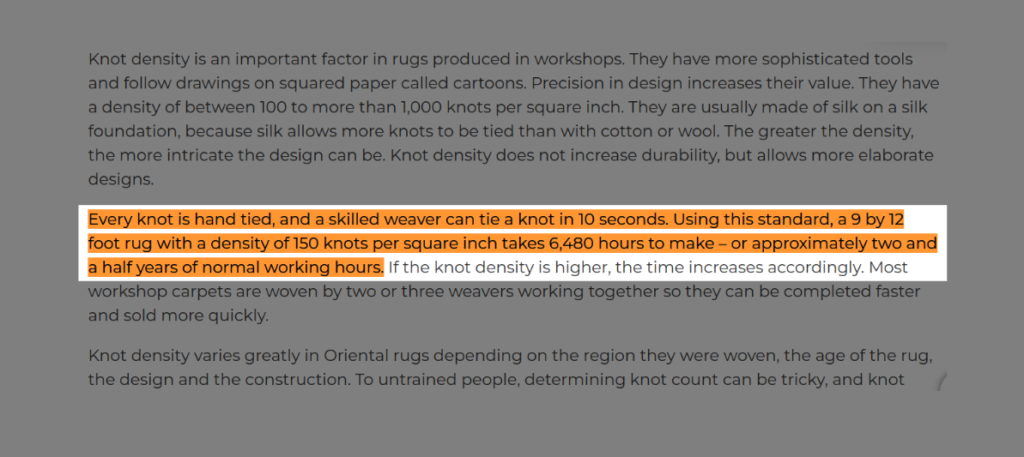
Price of wool carpets is high for some legit reasons, ay! Here… Before you start here’s a general idea of the KPSI with the types of wool rugs you may like –
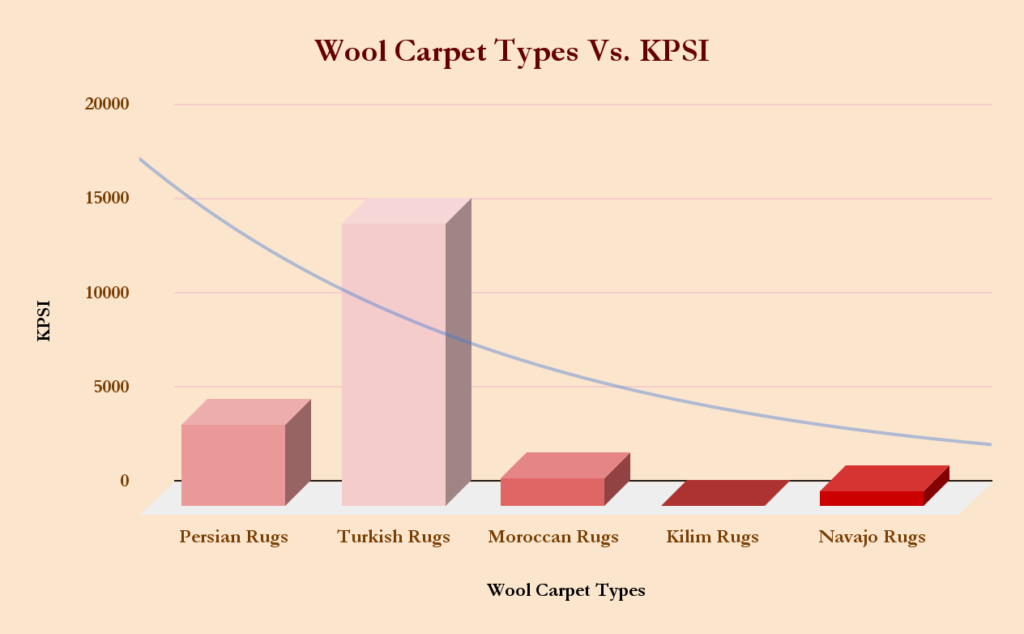
| SL | Type of Rug | Origin | KPSI | Typical Size Rang (Ft.) |
| 1. | Persian Rugs | Iran | 120-8501 | 3×5 to 10×14 |
| 2. | Turkish Rugs | Turkey | 60-30023 | 2×3 to 9×12 |
| 3. | Moroccan Rugs | Morocco | 50-2004 | 4×6 to 8×10 |
| 4. | Kilim Rugs | Middle East | 0 (Flate Weave) | 2×3 to 8×10 |
| 5. | Navajo Rugs | North America | 30-804 | 2×3 to 6×9 |
Gather Loom, Warp Threads & Wool Fibers
Start by assembling the essential tools that I’m guessing you already have. With all the tools include a loom and warp threads too.
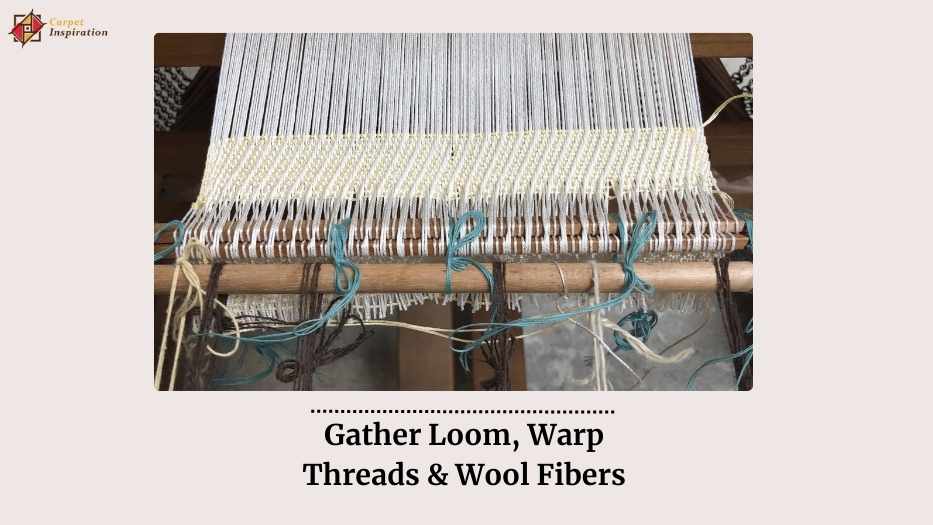
Make sure you are using a combination of natural wool with synthetic fibers as I told you before. It’ll make your carpet more durable.
Prepare Natural Wool & Synthetic Fibers
Clean and card the wool fibers, then combine them with synthetic materials like nylon for added strength and water resistance. Make sure no dust mites I mean dust particles are getting mixed in.
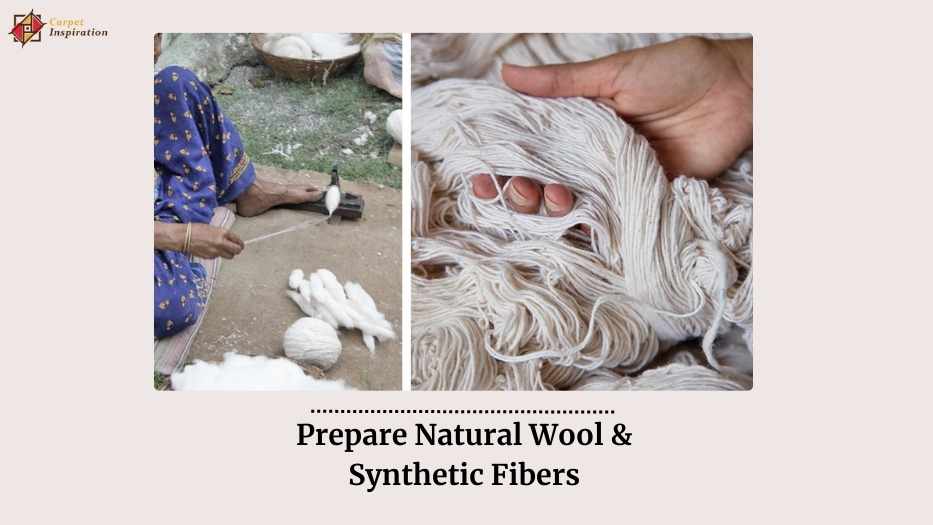
Weave Using a Blend of Natural & Synthetic Materials
Set up the loom, arrange the warp threads, and begin weaving the wool and synthetic fibers. This process is very important to complete with patience.
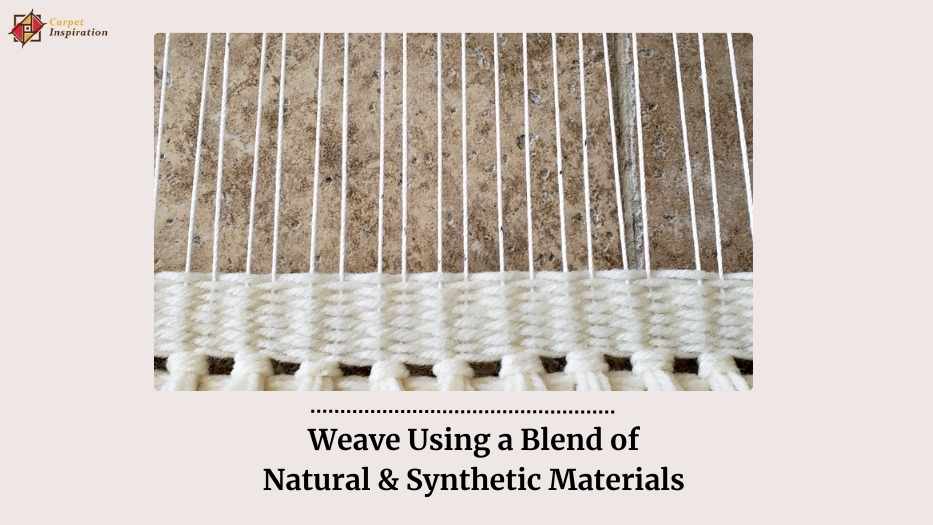
It will take a very long time but do know that this step affects your carpet’s durability and stain resistance the most too.
Finish, Trim, and Protect Against Carpet Beetle Damage
After weaving, trim the edges to prevent fraying, and take preventative measures like regular vacuuming to protect against carpet beetles and other pests. For a broader look into the weaving method and interlacing etc stuff read my DIY blog on making a hand-woven rug by yourself.
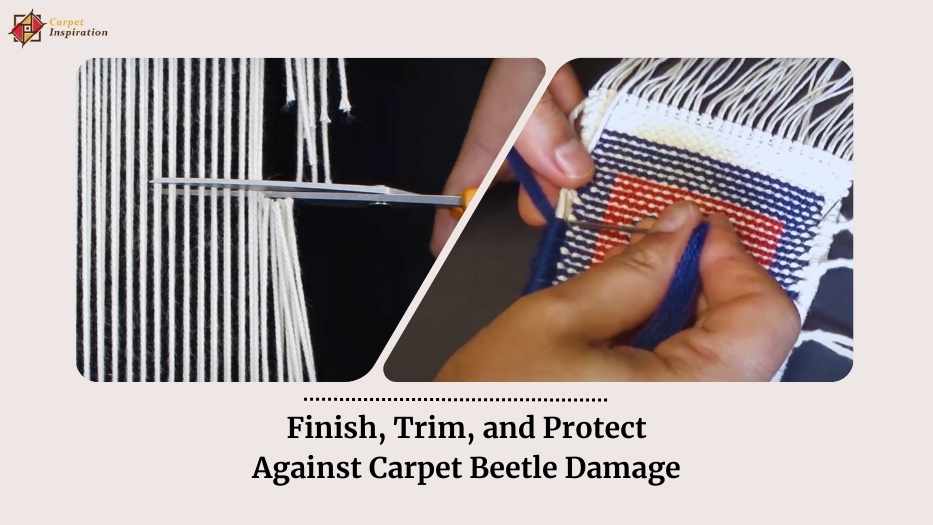
Now for the record, I truly wish I had a video prepared for you which sadly I don’t. But hey… I have a simple demonstration that I found on a blog of Kaliko which may also help you understand the steps better.
Now it’s not exactly wool carpet weaving but it’s a weaving on loom so you can get the technique ideas at least.
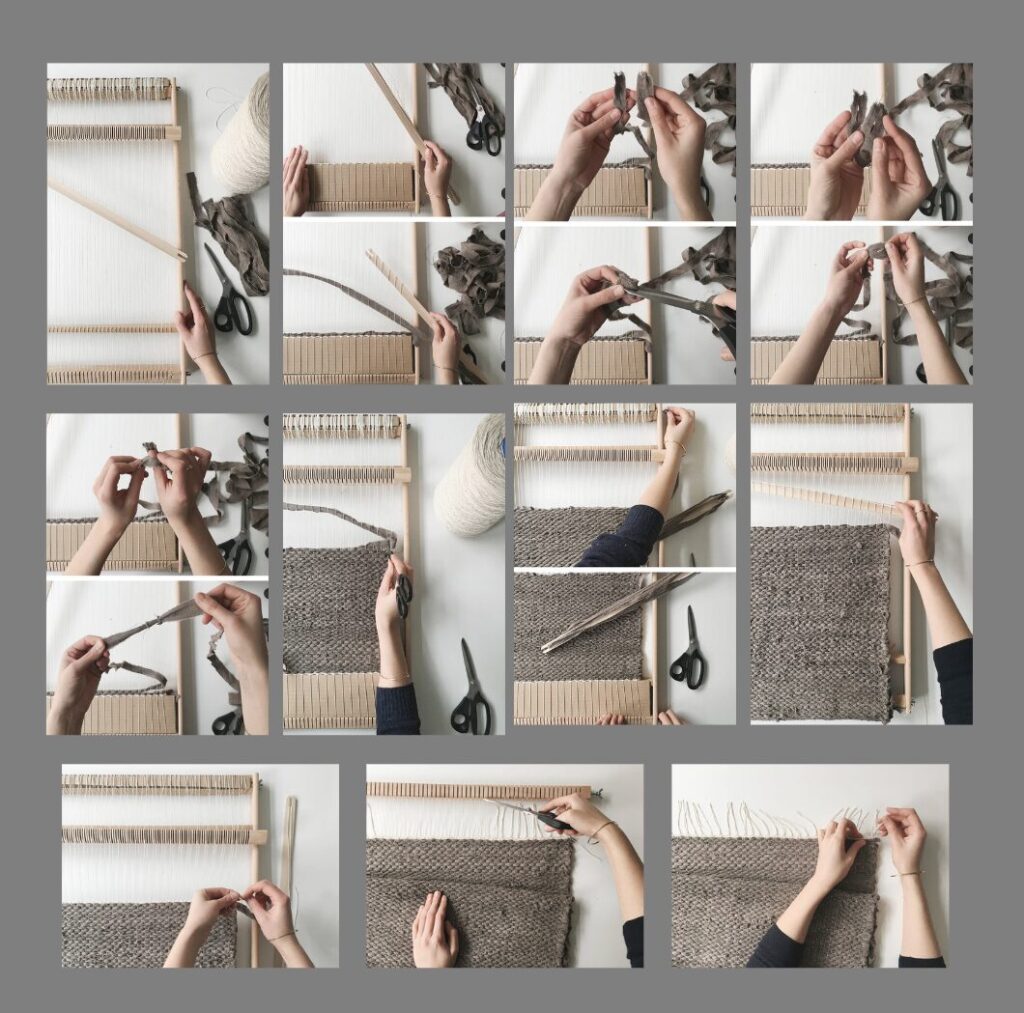
For a better understanding of how a pro weaver would do the job with real wool watch this video –
So… now that you’ve read all these, how do you feel about making your own wool carpet?
How Long Does It Take to Make a Wool Carpet?
The time required to make a wool carpet depends on the size and complexity of the design. Typically, a handwoven wool carpet can take anywhere from several days to a few weeks to complete. Machine-made wool carpets, which often incorporate synthetic fibers, can be produced in a matter of days. Despite the longer time investment, handwoven carpets offer a unique aesthetic appeal and superior durability due to the use of high-quality natural materials.
| SL | Carpet Type | Estimated Time to Make |
| 1. | Handwoven Wool Carpet | 1 to 12 months based on design complexity. |
| 2. | Machine-made Wool Carpet | Not more than 1 day |
Frequently Asked Questions (FAQs)
Can Wool Carpet Be Made by Hand?
Yes, wool carpets can be made by hand if you use traditional weaving techniques that is. Hand-woven loop pile carpet has a sturdier build compared to synthetic fiber and the highest price of wool carpet carpets.
What Techniques Are Used in Weaving Wool Carpet?
Tufting, Knotting, and sometimes flat weaving techniques are used in weaving wool carpets. But if you’re searching on a manufacturing level you will find names such as – Axminster, Wilton, and Flate weave weaving techniques.
Are Wool Carpets Expensive to Make?
Based on your design, material quality, and project size the cost can differ. In general, the average cost of making your own synthetic alternatives can range from $4 to $18 per sq/ft. In the bigger picture wool carpets sure are expensive than other carpets.
The Bottom Line
Wool carpet is an excellent choice for homeowners looking for durable, energy-efficient floor coverings. So it totally makes sense to want to learn about how to make wool carpet by yourself.
Whether it’s for your DIY project or buying a professionally made carpet, understanding what is woven carpet will help you make an informed decision.
After all the natural insulator properties of wool, make it no less than a perfect choice for those concerned about sustainability and long-term value.

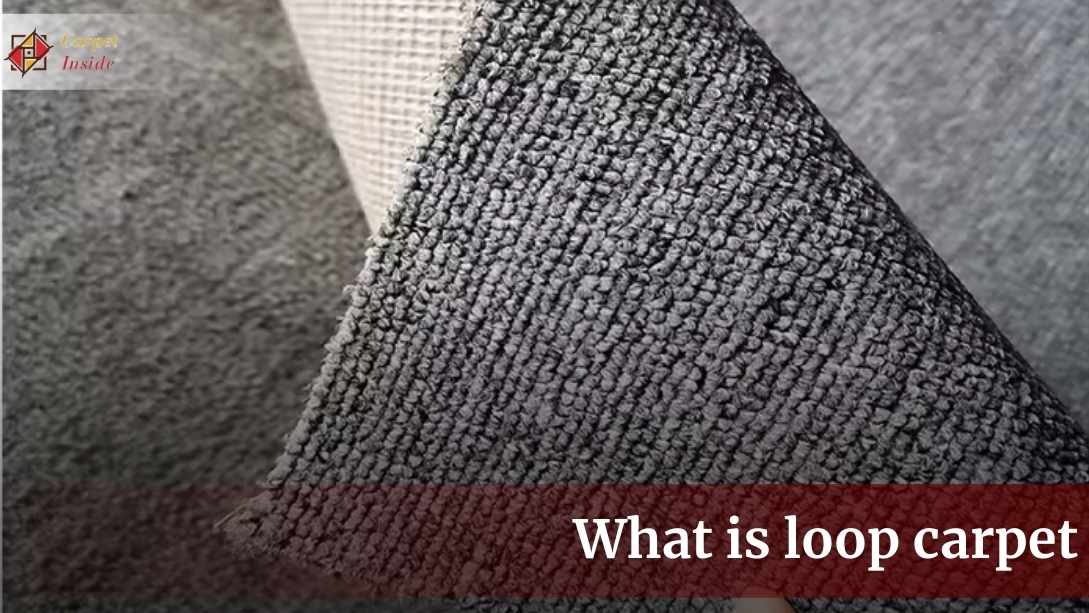
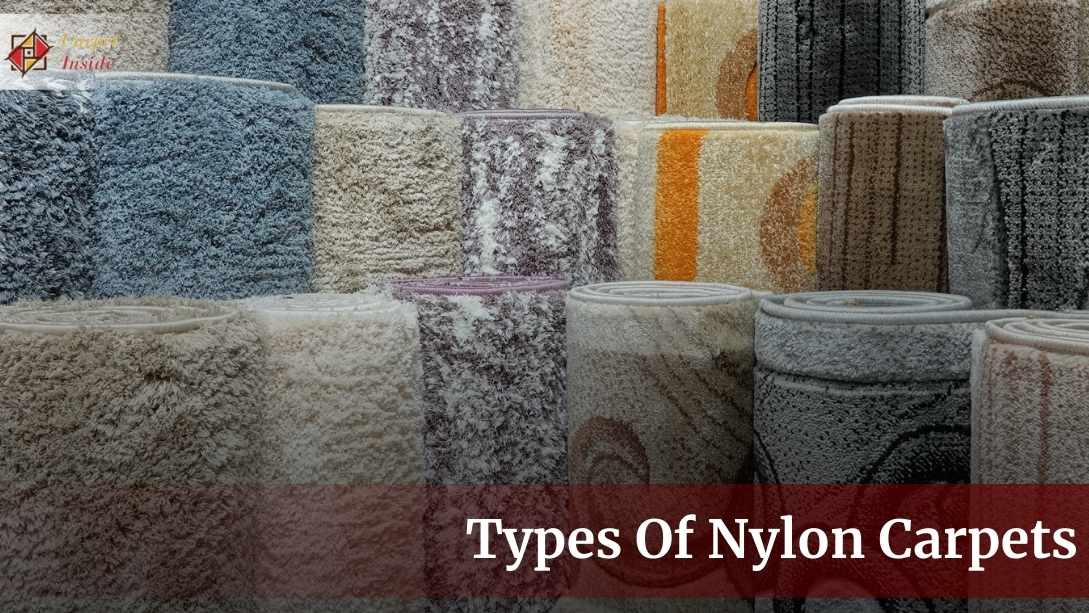
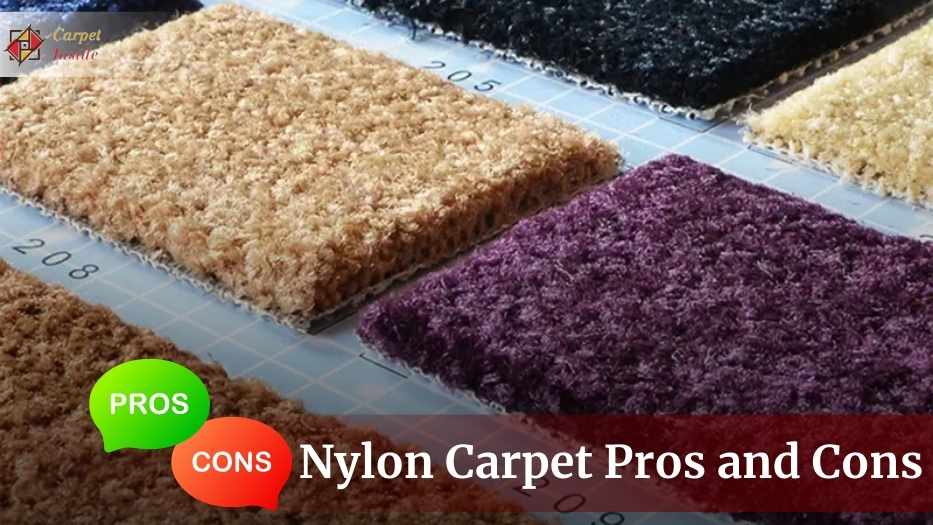
Leave a Reply